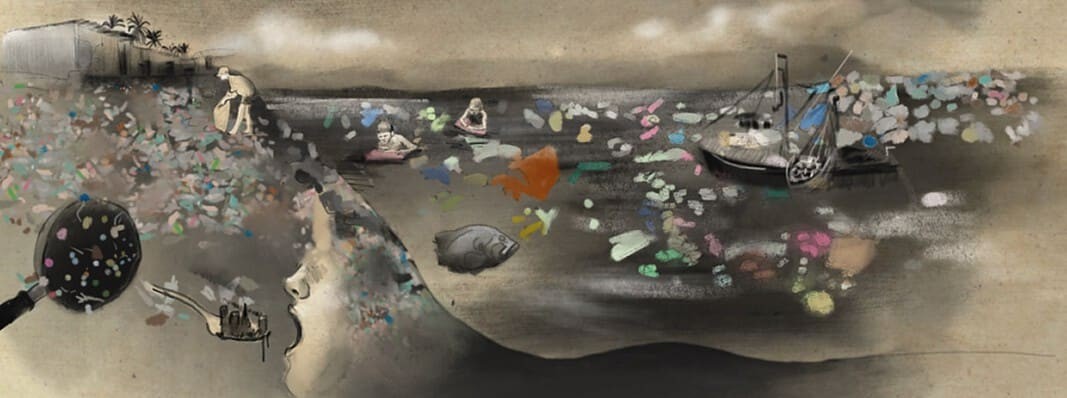An event scheduled for this coming March will bring together stakeholders from around the world to draw up a roadmap for an equity-focused path to address marine plastics.
In a study published last November, scientists concluded that coastal communities most affected by marine plastic pollution should be better represented in drafting potential solutions.
Project leader Yoshitaka Ota, a University of Washington professor of practice in marine and environmental affairs and director of The Nippon Foundation Ocean Nexus Center, said:
“We all benefit from plastics, but some people are paying more of the external costs in terms of the environmental damage, well-being issues and just horrendous scenes that they must live with in places they call home.”
Increasingly, the greenhouse gases causing climate change are seen as an issue in which some countries produce most of the pollution while other countries or groups are more at risk from the long-term consequences. Plastic pollution, this report argues, is a similar issue for coastal communities.
The report includes 31 authors from nine countries. It incorporates case studies and analyses from around the world as well as larger, overarching recommendations for change.
The report covers topics such as:
* A call to replace the term “plastic litter” with “plastic pollution.” The word “litter” frames the issue on a small scale that can be addressed with better waste collection, disposal or recycling, rather than broader industry-wide changes to production.
* A discussion of the rise in plastic waste during the COVID-19 pandemic, through masks, gloves, face shields and a resurgence of single-use and individually wrapped products.
* Chapters that provide place-based case studies, including interviews with local residents about their experiences with marine plastics. Locations include a fishing community in Ghana, coastal mangrove forests in Ecuador, and an island in southern Japan that includes both tourists and local residents.
* Two analyses of waste cleanup programs — Washington state’s Marine Debris Action Plan and the “Fishing for Litter” program in the Netherlands.
* A section with multiple authors focused on the island of Aotearoa, New Zealand. Maori perspectives have been disregarded in efforts to address marine plastic pollution, authors write, despite the greater impact and importance of marine environments for Maori people’s livelihood and culture.
* A review of international rules for plastic waste disposal — a patchwork of regulations including the Basel Convention, a nonbinding agreement that the U.S. has not signed.
* A critique of Coca-Cola Co.’s “World Without Waste” initiative as an example of industry-backed solutions to marine plastic pollution that focus on individual consumers, rather than bigger, more permanent solutions that could reduce plastic waste.
Mari Shibuya, a Seattle-based artist, created digital watercolor paintings that appear throughout the document.
This coming March’s event will bring together audiences to implement the report’s main recommendations.
For more info about the event, go to the Nippon Foundation Ocean Nexus Center website.
(Featured Image credit: Mari Shibuya)

